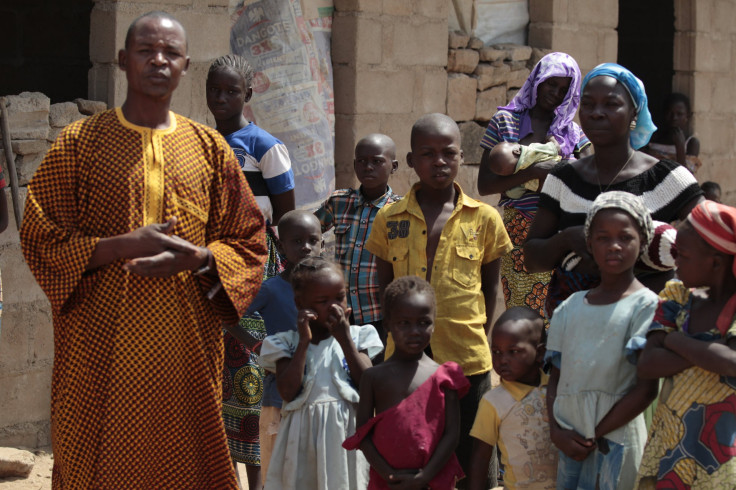Boko Haram Massacres Civilians, Burns Down Mosque In Cameroon Days Before Nigeria Presidential Election

Members of the Nigerian Islamist militant group Boko Haram massacred civilians and burned a mosque in the Cameroonian town of Fotokol Wednesday, residents said. The assault came hours after neighboring Chad sent troops who allegedly killed more than 200 Boko Haram fighters in the Nigerian town of Gamboru, located just 500 yards from Fotokol.
Boko Haram extremists who escaped the fighting in Gamboru crossed over to Fotokol, where they targeted civilians. The fighters slit the throats of several townspeople and torched Fotokol’s primary mosque, multiple accounts said. At least 10 people were killed in the attack, according to one report.
“Boko Haram inflicted so much damage here this morning. They have killed dozens of people,” Fotokol resident Umar Babakalli told Agence France-Presse in a phone interview. “They burnt houses and killed civilians as well as soldiers,” a source familiar with local security forces said.
Chadian forces that staged the offensive against Boko Haram in Gamboru raced back across the border and managed to repel the fighters who attacked Fotokol. An official death toll was unavailable.
The African Union announced support Saturday for a plan that would send 7,500 allied troops to counteract Boko Haram offensives in Nigeria. Chad and Cameroon each pledged military support for the operation.
Nigerian and Chadian forces stepped up bombings on Boko Haram positions, while thousands of Chadian soldiers backed by armored vehicles directly engaged the militants. Nine soldiers were killed and 21 were wounded in the raid that left more than 200 Boko Haram fighters dead Tuesday, Chad’s military said.
The increased military action against Boko Haram has occurred amid heightened levels of violence ahead of Nigeria’s presidential election. One person was killed and more than a dozen others wounded Monday when a suicide bomber targeted a rally attended by incumbent President Goodluck Jonathan, BBC News reported.
Jonathan’s campaign has been poorly received in northern Nigeria amid the government’s failed attempt to stem the tide of Boko Haram attacks, according to the Wall Street Journal. Recent polls held Jonathan in a virtual tie with his opponent, former dictator Muhammadu Buhari, a retired general who briefly seized power in a 1983 military coup.
Nigeria’s presidential election is set to be held Feb. 14. A loss would establish Jonathan as Nigeria’s first sitting president to lose an election since the country installed its current democratic system in 1999.
© Copyright IBTimes 2025. All rights reserved.






















